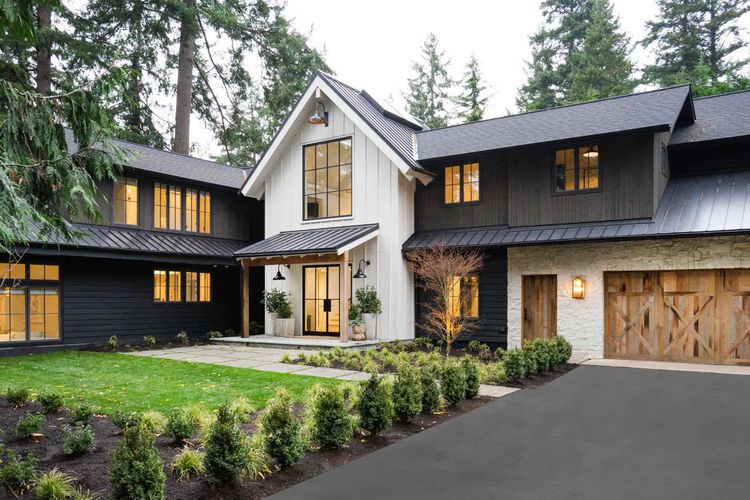Buying your first home feels amazing. The keys are in your hand, the papers are signed, and you’re ready to create your perfect space.
But wait – there’s more to owning a home than just paying the mortgage each month. Many first-time homeowners get shocked when extra costs start popping up.
I’ve seen this happen over and over again. People budget for their mortgage but forget about all the other stuff that comes with owning a house.
Let me walk you through the big expenses you should know about before you jump into homeownership.
This isn’t meant to scare you, it’s to help you plan better and avoid those “why didn’t anyone tell me about this?” moments.
Big Expenses First-Time Homeowners Should Expect
When you own a home, the bills don’t stop at your mortgage payment. There are several major costs that show up right away or creep in over time. Knowing what these are helps you set aside the right amount of money and prevents financial stress down the road.
Think of these expenses as the “supporting cast” to your mortgage “star.” They might not get top billing, but they’re absolutely essential to the show running smoothly.
Closing Costs
Most first-time buyers focus on saving for a down payment but forget about closing costs—those fees you pay when you finish the home purchase.
Closing costs typically run between 2% to 5% of your loan amount. On a $300,000 home, that’s $6,000 to $15,000 you’ll need on top of your down payment. These costs cover things like home loan fees, title insurance, appraisals, inspections, and attorney fees.
The tricky part? These costs come due all at once on closing day. You can’t usually roll them into your mortgage.
Some buyers ask sellers to cover part of the closing costs, but this works better in buyer’s markets where sellers are more willing to make deals. For example, eligible veterans may benefit from low income VA home loan options that reduce upfront costs, which can be a huge help with these initial expenses.
Pro tip: Ask for a loan estimate from at least three different lenders. They’ll break down all potential closing costs so you can compare and potentially save thousands.
Property Taxes
When I talk to new homeowners, property taxes often catch them off guard. Unlike rent, which stays the same monthly, property taxes can change yearly and vary wildly depending on where you live.
Property taxes fund local services like schools, roads, and emergency services. They’re based on your home’s value as assessed by your local government. In some areas, you might pay $1,200 yearly, while in others, it could be $12,000 or more for a similar house.
Many mortgage lenders collect property taxes as part of your monthly payment. They hold this money in an escrow account and pay the taxes when due. This helps spread out the cost throughout the year.
Here’s what gets people: property taxes can go up even if you didn’t change anything about your house. A hot housing market, neighborhood improvements, or local budget needs can all trigger increases.
Smart move: Check your tax assessment regularly. If it seems too high, you can appeal it. Many homeowners save hundreds yearly just by questioning their assessment.
Homeowners Insurance
Your mortgage company will require homeowners insurance before they give you the keys. This insurance protects both you and the lender if something bad happens to your home.
A typical policy covers damage to your house from fires, storms, and certain other disasters. It also includes liability protection if someone gets hurt on your property.
Basic coverage costs around $1,200 to $1,500 yearly for an average home, but prices vary based on:
- Where you live
- Your home’s size and age
- Your deductible amount
- Your credit score (in most states)
- Extra coverage for valuables or high-risk features like pools
Don’t skip on good coverage to save money. If disaster strikes, you’ll want enough protection to rebuild your home and replace your stuff.
Money-saving tip: Bundle your homeowners and auto insurance with the same company. Many offer discounts of 10-15% for bundling policies.
Maintenance and Repairs
When you rent, your landlord handles repairs. Own a home? That’s all on you now.
Houses need regular upkeep—it’s not optional. Ignore small issues, and they grow into big, expensive problems.
Most financial experts suggest setting aside 1-3% of your home’s value each year for maintenance and repairs. For a $300,000 home, that’s $3,000 to $9,000 annually.
Common expenses include:
- Replacing the water heater ($1,000+)
- Fixing the roof ($300 for repairs, $8,000+ for replacement)
- HVAC system repairs ($200-600) or replacement ($5,000+)
- Plumbing issues ($150-350 per visit)
- Gutter cleaning ($150-200 twice yearly)
My advice? Start a separate “house emergency fund” with at least $5,000. When you use it, fill it back up as soon as you can.
Smart homeowners also learn basic DIY skills. Changing air filters, unclogging drains, and basic painting can save you hundreds each year in service calls.
Utilities and Services
Many first-time buyers come from apartments where some utilities were included in rent. The shock of paying for everything can be rough.
Common monthly utility costs include:
- Electricity: $100-150
- Natural gas/heating oil: $50-150
- Water and sewer: $70-120
- Trash pickup: $20-80
- Internet: $50-100
- Cable or streaming services: $50-150
Your house might also need services your apartment didn’t:
- Lawn care/landscaping
- Pest control
- Snow removal
- Chimney cleaning
- Septic system maintenance
These costs vary hugely based on your home’s size, age, and efficiency. An older home might cost twice as much to heat and cool as a newer one.
Money-saving move: Make your home more efficient. Programmable thermostats, LED bulbs, and better insulation can cut your utility bills by 10-30%.
Home Improvements and Upgrades
Most people buy homes that aren’t perfect. You’ll likely want to change things—maybe right away or over time.
Some improvements you might face:
- Kitchen updates ($10,000-50,000)
- Bathroom renovations ($6,000-20,000)
- Flooring replacement ($3-10 per square foot)
- Painting ($2,000-5,000 for whole house interior)
- New windows ($300-1,000 per window)
- Landscaping ($2,000-10,000)
What surprises folks most? How fast these costs add up. That $500 light fixture plus $200 in new cabinet hardware plus $300 in paint… suddenly you’ve spent $1,000 without making major changes.
Make a wish list of all improvements you want, then rank them by priority. Focus on one project at a time to avoid home budget stress.
HOA Fees or Community Dues
If you buy in a planned community, condo, or certain neighborhoods, you’ll likely pay HOA (Homeowners Association) fees.
These monthly or yearly fees cover shared amenities and services like:
- Pool maintenance
- Lawn maintenance for common areas
- Exterior building maintenance (for condos)
- Trash collection
- Security features
- Snow removal
- Clubhouse or gym access
HOA fees range widely—from $50 to over $1,000 monthly. The more amenities, the higher the fees.
The catch? HOAs can also levy special assessments for big projects like roof replacements or parking lot resurfacing. These can run thousands of dollars per homeowner.
Before buying, ask to see the HOA’s financial statements and history of fee increases. A well-run HOA builds reserves for major repairs, which means fewer surprise assessments.
Quick tip: Read the HOA rules before buying. Some restrict everything from the color you can paint your front door to whether you can park your boat in the driveway.
Conclusion
Buying your first home is still totally worth it. You’re building equity instead of paying someone else’s mortgage. You can paint the walls any color you want. You can get a dog without asking permission.
But go in with your eyes open about these seven expenses. Budget for them before you buy, and homeownership will feel like the amazing achievement it should be—not a financial stress factory.
Start with a bigger emergency fund than you think you need. Get quotes for insurance and estimates for any immediate repairs before closing. Talk to current homeowners about their real costs.
Owning a home costs more than renting in ways you might not expect. But with good planning, you can handle these expenses without breaking a sweat.
Take it from someone who’s seen thousands of first-time buyers succeed: knowledge is power when it comes to home finances. Now you have that knowledge. Use it wisely!



